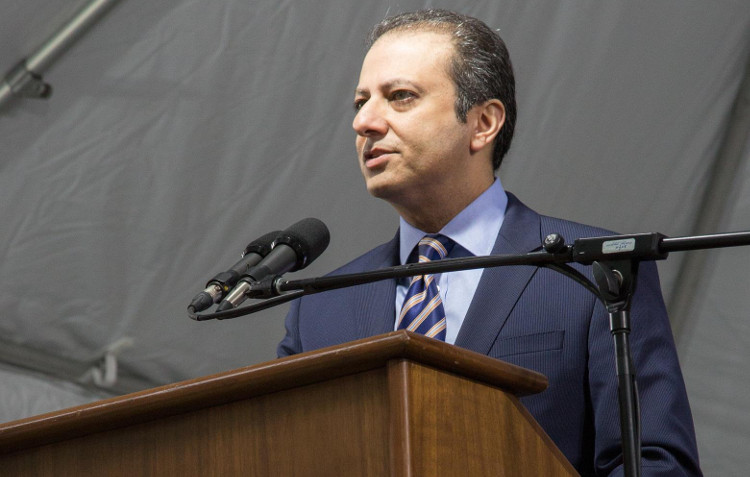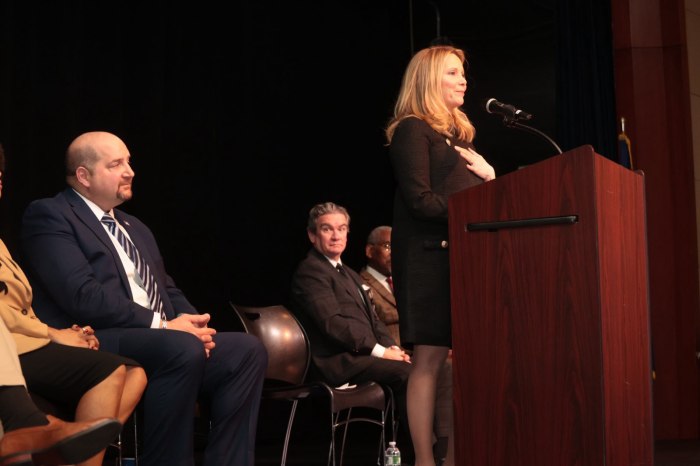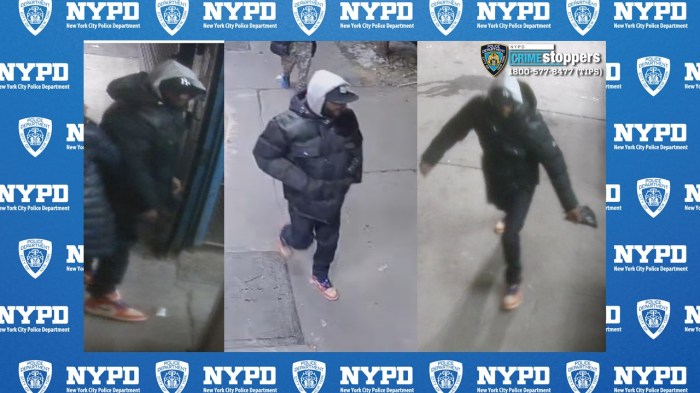By Cezary Podkul, ProPublica
Fired by President Donald Trump, Preet Bharara left behind a mysterious, thirteen-word message. “By the way, I know what the Moreland Commission must have felt like,” he tweeted last Sunday.
Americans are getting used to deciphering the tweets of a president who eviscerates his enemies in 140 characters or less. So perhaps it’s inevitable that a public official whom he dismissed would fight back in the same way — and similarly raising questions about the tweeter’s intent and state of mind.
A spokesman for the U.S. attorney’s office for the Southern District of New York said he could not elaborate on Bharara’s tweet. And the ex-prosecutor himself has made no further public comment, leaving those familiar with the Moreland Commission’s history to speculate about the presidential parallels.
The cryptic reference to the corruption-fighting commission, which New York Gov. Andrew Cuomo unexpectedly disbanded in March 2014, could simply mean that Bharara knows what it’s like to be let go when there’s still important work to be done. Or it could be read to accuse Trump, like Cuomo, of trying to axe an investigation before it brings down his friends. In the most sinister interpretation, it could even be a threat or a portent — since Cuomo’s allies ultimately faced justice anyway.
“I think Preet is way too smart to simply say something that might have wide-ranging implications without thinking it through,” said Chris Malone, a political science professor at City University of New York’s Lehman College. Malone said he thinks Bharara was “sending a message” that “you’re cutting off an investigation in midstream.”
Following a series of corruption scandals involving state lawmakers, Gov. Cuomo created the Moreland Commission to Investigate Public Corruption, as it was formally known, in July 2013 to root out corruption in politics and state government. It was named for a 1907 law known as the Moreland Act, which gives the governor broad authority to investigate state agencies. The panel’s 25 members included current and former district attorneys from across the state who were empowered to issue subpoenas and compel testimony.
The panel issued a first draft of its findings in December 2013 and vowed to “proceed with ongoing investigations as we continue to follow the money.” Those investigations hadn’t reached their conclusion when, four months later, Cuomo abruptly dismantled the commission.
Cuomo said at the time that a package of modest ethics reforms agreed to by the legislature eliminated the need for the commission. But a subsequent New York Times investigation revealed that Cuomo’s aides undermined the commission as the panel’s subpoenas started getting close to the governor’s office. The timing suggested Cuomo was concerned that the commission might dig up unwelcome facts about his administration.
Enter Bharara. After Cuomo disbanded the panel, the Moreland Commission handed over documents, computer files and other materials from its investigation to the federal prosecutor, who vowed to take over its mantle.
Those documents helped lead to the downfall of longtime Assembly Speaker Sheldon Silver and Senate Majority Leader Dean Skelos. Both were indicted by Bharara’s office and convicted on corruption charges. Another Bharara inquiry led to bribery charges against Cuomo confidant Joseph Percoco and several other players in upstate economic development programs championed by the governor, though Cuomo himself was not charged with any wrongdoing. Percoco and seven other co-defendants pleaded not guilty to the charges in December.
Bharara’s office handled hundreds of cases on everything ranging from public corruption to insider trading to accounting fraud and drug trafficking. It’s unknown whether any of his cases touched on the Trump administration, but the possibility exists: Trump Tower, the president’s unofficial residence, falls squarely within Bharara’s district.
Last November, the president asked Bharara to stay on as the chief prosecutor for the district. Bharara came out of the meeting at Trump Tower saying “I expect that I will be continuing to work at the Southern District of New York” under President Trump. Nevertheless, on Saturday, Trump fired him.
“He made such a big deal of bringing him to Trump Tower and telling him that he’s going to stay on,” Malone said. “Something obviously changed.”
The Moreland Commission handed off its materials to Bharara. Perhaps Bharara’s tweet implies that he, too, has documents to share with other investigators. If so, we’d like to suggest a worthy recipient: ProPublica.
ProPublica is a Pulitzer Prize-winning investigative newsroom. Sign up for their newsletter.






























